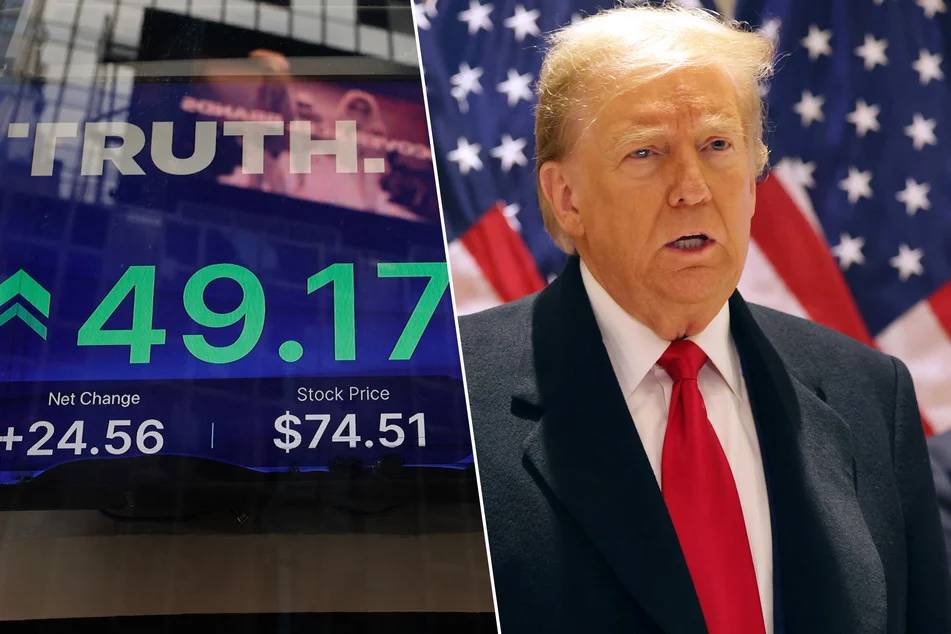Fund Managers Bullish Plus Trump Re-election: Two Major Positives to Boost US Stocks Further?
While the Fed and the U.S. government remain independent of each other, the possibility of pressuring the Fed to cut interest rates after Trump's election is not ruled out.
On July 16th, a survey by Bank of America indicated that global fund managers remain bullish on U.S. stocks in July, due to the possibility that U.S. interest rates may soon decrease to avoid a hard landing.
The survey showed that 242 fund managers globally, managing $632 billion in assets, believe that the global economic growth expectations have seen the largest monthly decline since March 2022, dropping from -6% to -27%.
Bank of America stated that this reflects a viewpoint that interest rates are about to start falling: "Monetary policy is at its strictest since November 2008, and only a rate cut can truly 'soft-land' the U.S. economy."
After key data has successively come in below expectations, the U.S. has officially entered a rate-cutting cycle.
Currently, the market is betting on the Federal Reserve's first rate cut to be in September. Powell said that three consecutive data disappointments are enough to indicate the issue, and the Fed "does not have to wait for inflation to fall to 2% before considering a rate cut."
In addition to the rate-cutting cycle, this year also coincides with the U.S. election year. Currently, Trump's chances of winning after the attack have risen to 70%. Analysts say that if Trump is re-elected as President of the United States, it may trigger a large-scale refinancing boom and record home sales.
Dennis Shirshikov, a professor of finance, economics, and accounting at the City University of New York, said that Trump's government's economic policies may focus on deregulation and tax cuts. These measures can stimulate economic growth, increase the disposable income of many Americans, and benefit the real estate market by increasing housing demand.
Shirshikov said: "For example, the Tax Cuts and Jobs Act signed by Trump during his first term in 2017 led to an increase in after-tax income for many individuals and businesses, providing more funds for home buying and real estate investment."
However, Shirshikov also issued a warning, stating: "Although deregulation and tax cuts can stimulate economic activity, they may also lead to inflation or cause the Federal Reserve to raise interest rates to control inflation. This could make mortgage loans more expensive and reduce housing affordability."
Some other experts also believe that Trump's election will stimulate the U.S. real estate market, but the path is different. The former is to stimulate the market through fiscal support, while the latter is to pass on loan interest rates through monetary policy.
Analysis suggests that although the Federal Reserve and the U.S. government are independent of each other, it is not ruled out that Trump may pressure the Federal Reserve to cut interest rates after the election.
Marty Harlee, President and CEO of First Trust Financial, said that once the Republicans win the election, it is expected that Trump will immediately suggest that the Federal Reserve lower interest rates to maintain rapid economic growth.
Harlee said: "If Trump wins the upcoming election, we will see another large-scale refinancing boom and a record number of home sales, and lower interest rates will also promote the upward development of all other industries."
The above judgment is not without precedent. In 2016, after Trump won the presidential election, due to the market's expectations of high fiscal deficits, U.S. Treasury yields rose across the board, the spread between 2-year and 10-year U.S. Treasury yields steepened by 35 basis points, the U.S. dollar index rose by 6% from 97, and the S&P 500 index rose by 9%.
At that time, the consensus among traders and analysts was that Trump's election would stimulate inflationary portfolio trading that benefits from loose fiscal policy and greater protectionism: a stronger dollar, rising U.S. bond yields, and rising bank, healthcare, and energy stocks. Trump's election meant that it would be more difficult for the Federal Reserve to cut interest rates.
Stephen Dover, Chief Market Strategist of Franklin Templeton and Head of the Franklin Templeton Institute, believes: "If the Republicans win a landslide victory, the stock and credit markets will react positively in anticipation of Trump's implementation of market-friendly tax and regulatory policies. Specifically, the market expects that Trump's policies after the election will lead to strong U.S. economic growth, but at the same time, huge fiscal deficits will continue, so U.S. Treasury bonds may be slightly weaker, with higher yields."

·Original
Disclaimer: The views in this article are from the original Creator and do not represent the views or position of Hawk Insight. The content of the article is for reference, communication and learning only, and does not constitute investment advice. If it involves copyright issues, please contact us for deletion.